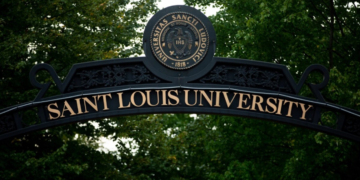Feb 11, 2025 Story by: Editor
PERTH AMBOY – Against the backdrop of waters that once carried enslaved Africans to Perth Amboy, the New Jersey Institute for Social Justice, alongside prominent advocates, experts, and elected officials, announced the formation of the New Jersey Reparations Council. This initiative is the first of its kind in the state, aimed at recognizing, addressing, and repairing New Jersey’s deep but often overlooked role in slavery and its lasting effects on Black communities.
“We are incredibly excited to be convening this groundbreaking Council, and could not ask for a more talented, motivated and accomplished group of members,” said Ryan Haygood, President & CEO of the New Jersey Institute for Social Justice. “This is a tremendous undertaking, but one that we can no longer avoid if we are ever to live up to our ideal as a multiracial democracy in New Jersey and across the country. If there were ever a team that could accomplish this, it is this one.”
The event featured welcoming remarks from Perth Amboy Mayor Helmin Caba, with additional speeches by U.S. Sen. Cory Booker, Newark Mayor Ras Baraka, and Asw. Shavonda Sumter. A flyer listing all speakers, including representatives from the Institute, is available, and a video recording of the event can be accessed on the Institute’s Facebook page.
The Council brings together leading experts from across New Jersey and the nation, with co-chairs Taja-Nia Henderson (Rutgers Law School) and Khalil Gibran Muhammad (Harvard Kennedy School) overseeing the initiative. It comprises nine specialized committees focusing on key areas: History of Slavery in New Jersey, Public Education & Narrative, Economic Justice, Segregation in New Jersey, Democracy, Public Safety & Justice, Health Equity, Environmental Justice, and Faith & Black Resistance.
“Given the generations of unaddressed, compounded and systemic racial oppression that advantaged white people at the expense of Black people, how could New Jersey not suffer from the vast racial disparities that we have today?” said Jean-Pierre Brutus, Senior Counsel in the Economic Justice Program at the Institute, who represents the Institute as the Council Convenor. “We like to think of ourselves in New Jersey as progressive and enlightened – and in many ways that is true. But, in other ways, our self-generated narrative has forestalled our reckoning and our acknowledgment that when it comes to racial justice, we have a long way to go. The time has come to confront and repair.”
Despite being widely considered a northern state, New Jersey’s historical dependence on slavery was significant, with some historians referring to it as “the slave state of the North.” At its founding, English settlers were granted 150 acres of land, plus an additional 150 acres for each enslaved person they brought with them. This “slavery bonus” laid the foundation for systemic racial disparities, which continued through later policies such as the cottager system, racially restrictive deeds, denial of GI benefits to Black veterans, redlining, and mass incarceration. These historical injustices have led to present-day racial inequalities, including an alarming $300,000 wealth gap between Black and white households in the state.
“We understand that people have questions about what reparations should look like and who should get them,” added Haygood. “This will be up to the Council, after it studies New Jersey’s unique historical and current landscape. As Convenor, the Institute is encouraging the Council to think boldly and imaginatively, and to propose solutions that are commensurate to the enduring harms Black people in New Jersey continue to face from slavery and the anti-Black policies that followed.”
The Institute has outlined that potential recommendations from the Council could include significant investments in Black communities aimed at creating lasting societal change, as well as direct cash payments to compensate for lost earnings and wealth.
“We are looking for policies that will go beyond harm reduction and will be an answer to the question of what it will take to fundamentally empower Black New Jerseyans so they will be truly liberated and thrive,” Haygood added.
Over the next two years, the Council will conduct an in-depth analysis of New Jersey’s racial history and its impact on present-day disparities. It will develop strategic, transformative policy recommendations for reparative justice initiatives in the state. The nine committees will also host virtual public meetings where community input will be actively solicited.
The Council is scheduled to provide a progress update on its work by Juneteenth 2024. By Juneteenth 2025, it will release a comprehensive final report compiled from the findings of its committees. This document could serve as a foundational guide for a state-based reparations task force if pending legislation to establish one is approved—or stand as an independent framework for advancing reparative justice in New Jersey. Source: NJISJ
















